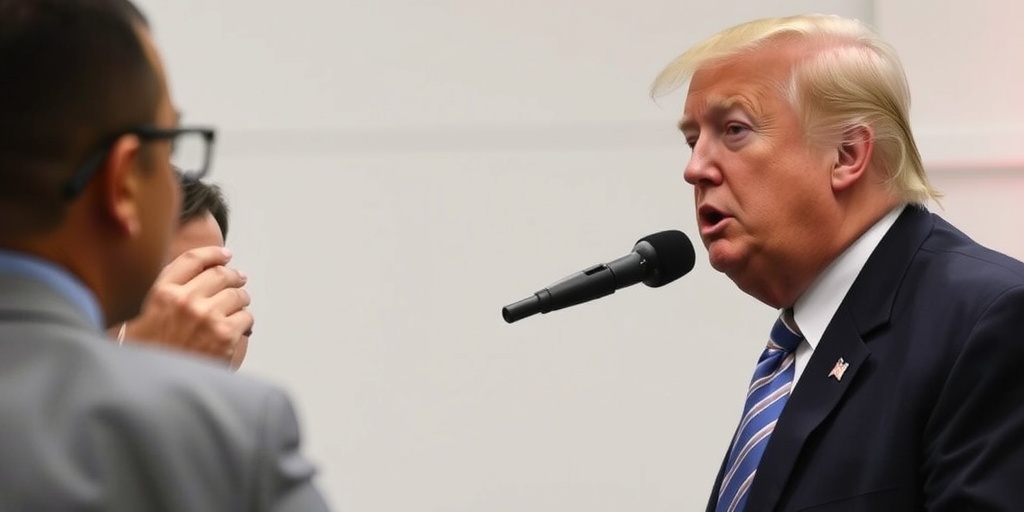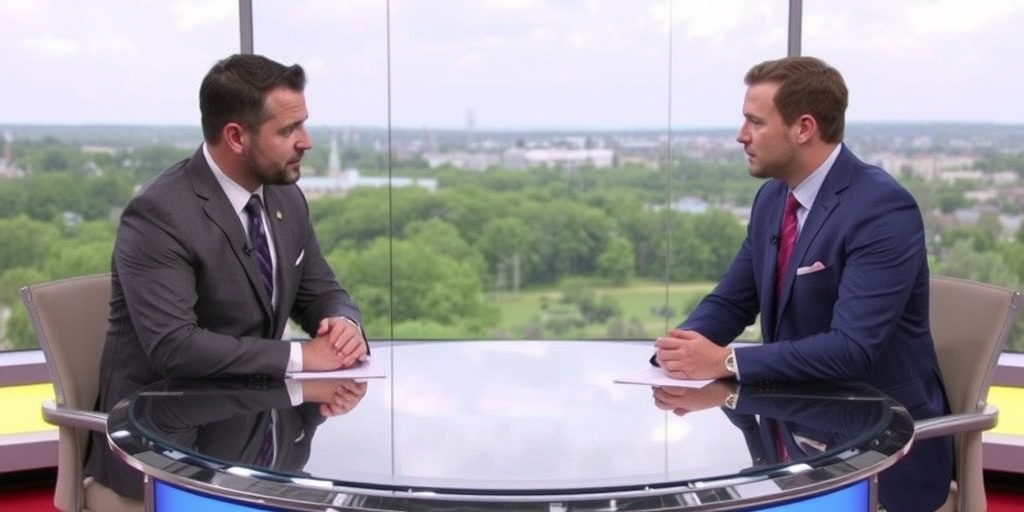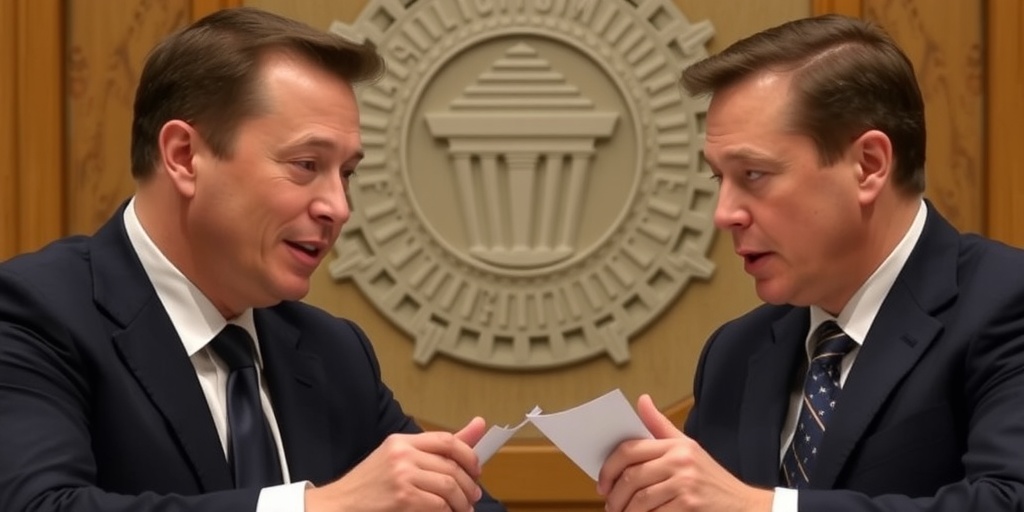Now Reading: Musk and the Right Embrace Left’s Critique of U.S. Power
-
01
Musk and the Right Embrace Left’s Critique of U.S. Power
Musk and the Right Embrace Left’s Critique of U.S. Power

Title: A Shift in Narrative: The Right’s Take on America’s Foreign Policy Legacy
In a recent episode of “The Joe Rogan Experience,” lasting nearly three hours, host Joe Rogan delved into a thought-provoking discussion with Mike Benz, a former speechwriter for President Donald Trump. Benz, the focal point of the conversation, outlined a provocative perspective on America’s foreign policy, drawing upon long-standing criticisms traditionally associated with the political left. Their dialogue touched upon controversial issues, including the United States Agency for International Development (U.S.A.I.D.) and its alleged connections to the heroin trade in Southeast Asia, as well as the infiltration of the American left by the Central Intelligence Agency (CIA).
Benz’s analysis was notable not only for its content but also for its surprising origin. Contrary to expectations that the critique would come from a leftist academic, Benz’s right-leaning background—a speechwriter for Trump—highlights a significant shift within political discourse. Benz articulated that “The MAGA movement is fighting the ghost of Ronald Reagan,” referring to the former president’s historical support for international development initiatives. This comment encapsulates a broader ideological realignment, where right-wing figures have adopted, and in some instances, weaponized left-wing critiques to argue against established government agencies, most notably U.S.A.I.D.
This trend marks a striking twist in the political landscape. Historically, critiques of American involvement abroad have been championed by the left, viewing such actions as a brand of American imperialism that undermines the sovereignty of other nations. These critiques often highlight the risks associated with unchecked presidential power and the potential erosion of civil liberties within the United States. However, Trump and his supporters appear to be reframing these arguments to bolster their agenda, portraying them as part of a broader narrative of governmental overreach.
The implications of this ideological crossover are significant. University historian Hugh Wilford expressed that left-wing critiques are being “appropriated and weaponized” by Trump’s camp. This recontextualization serves as a rallying cry for the right, as they push back against agencies like U.S.A.I.D., alleging mismanagement and corruption. Tesla CEO Elon Musk has publicly echoed these sentiments, labeling U.S.A.I.D. as a “money laundering” operation and suggesting that its programs serve as a front for CIA activities. These assertions coincide with a growing skepticism among some conservatives about the role of foreign aid and its implications.
As various factions within the Trump administration echo these concerns, Trump’s second presidency seems to embrace narratives that directly challenge the established order. Figures such as Robert F. Kennedy Jr. and Tulsi Gabbard have also voiced similar critiques. Gabbard has publicly condemned covert operations in Syria and across the Middle East, while Kennedy has attributed the war in Ukraine to a larger U.S. foreign policy scheme aimed at undermining nations resistant to American dominance.
The broader right-wing discourse appears to have capitalized on a backlash against perceived hubris in international affairs. The Center for Renewing America, a think tank previously led by Trump’s former budget director Russ Vought, recently criticized the National Endowment for Democracy—an institution created to encourage democratic practices abroad—characterizing it as a tool for neoconservative agendas.
Interestingly, this appropriation of leftist critiques puts left-leaning groups in a paradoxical position, defending institutions and policies they have historically condemned. Daniel Immerwahr, a historian specializing in U.S. foreign policy, described this dynamic as a “weird fun-house mirror moment.” This scenario has rendered some traditional critiques impotent as they are being co-opted for opposing ends.
Mike Benz’s rising influence among right-wing circles can be attributed to his blending of historical leftist critiques with contemporary conservative ideologies. With staunch support from figures like Musk, who has frequently cited Benz in his social media commentary, the narrative seems set to grow in prominence among MAGA supporters.
At the core of this debate is the legacy of U.S.A.I.D. and its historical mission. While critics like Benz argue that contemporary operations mirror past intelligence abuses, many scholars, including Alfred McCoy, contend that U.S.A.I.D. has evolved positively since the end of the Cold War, contributing positively to global development.
The unfolding political saga highlights a significant transformation in public discourse regarding U.S. foreign policy. The interplay between leftist critiques and right-wing adoption of those critiques poses important questions about the future of American involvement abroad. As historical narratives are reshaped, the political landscape continues to shift in ways that challenge long-held assumptions and strive for a new understanding of America’s role on the global stage. Ultimately, observers may need to grapple with this newfound ideological fusion and its implications for both domestic and foreign policy in the years to come.
Stay Informed With the Latest & Most Important News
Previous Post
Next Post
-
 01New technology breakthrough has everyone talking right now
01New technology breakthrough has everyone talking right now -
 02Unbelievable life hack everyone needs to try today
02Unbelievable life hack everyone needs to try today -
 03Fascinating discovery found buried deep beneath the ocean
03Fascinating discovery found buried deep beneath the ocean -
 04Man invents genius device that solves everyday problems
04Man invents genius device that solves everyday problems -
 05Shocking discovery that changes what we know forever
05Shocking discovery that changes what we know forever -
 06Internet goes wild over celebrity’s unexpected fashion choice
06Internet goes wild over celebrity’s unexpected fashion choice -
 07Rare animal sighting stuns scientists and wildlife lovers
07Rare animal sighting stuns scientists and wildlife lovers





















